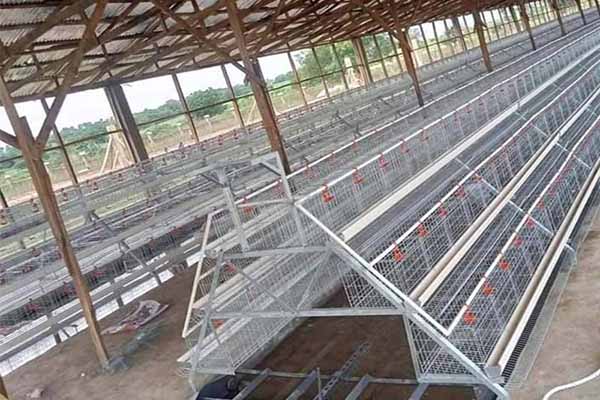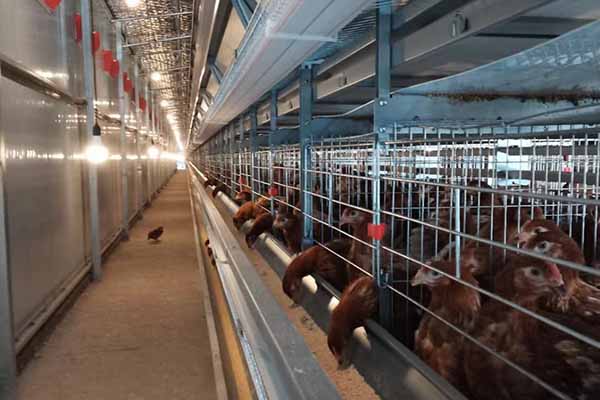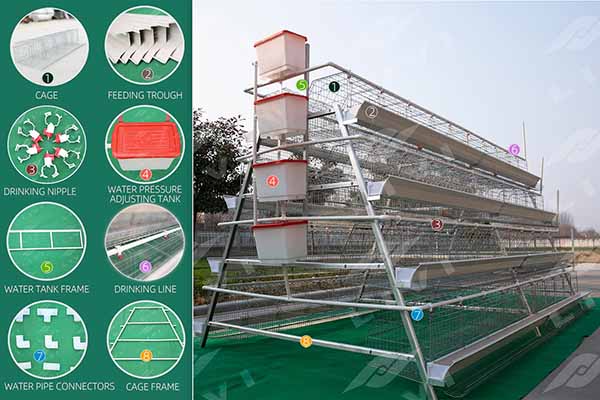How to Start a Chicken Farm in South Africa: A Comprehensive Guide
Time : 2025-06-27
Embarking on the journey of starting a chicken farm in South Africa can be both an exciting and challenging endeavor. The demand for poultry products is ever-increasing, and with the right strategies and knowledge, you can establish a profitable venture. This guide will walk you through the essential steps to start a chicken farm, from planning to operational management, with a focus on professional knowledge and equipment.
1. Research and Market Analysis
The first step in starting a chicken farm is thorough research and market analysis. Understand the local market demand, competition, and the types of chicken breeds that are popular and profitable in South Africa.
1.1 Identify the Market Demand
Research the local demand for poultry products by analyzing market trends, consumer preferences, and the potential for growth. Consider the following factors:
- Local consumption patterns
- Seasonal demand fluctuations
- Retail and food service market trends
1.2 Analyze the Competition
Understand the competitive landscape by identifying existing chicken farms, their sizes, and their offerings. Assess their strengths and weaknesses to identify opportunities for differentiation.
2. Breed Selection
Choosing the right chicken breed is crucial for the success of your farm. Different breeds have varying growth rates, egg-laying capabilities, and meat quality.
2.1 Layer Breeds
Layer breeds are primarily raised for their eggs. Common layer breeds in South Africa include:
- Lohmann Brown
- Hybrid Brown
- ISA Brown
2.2 Meat Breeds
Meat breeds are raised for their meat quality. Popular meat breeds in South Africa include:
- Broiler Chickens
- Ross 308
- Broad Breasted White
3. Planning and Legal Requirements
Creating a comprehensive business plan is essential for securing financing and ensuring the smooth operation of your chicken farm. Additionally, adhere to all legal requirements and regulations.
3.1 Business Plan
Your business plan should include the following sections:
- Executive Summary
- Company Description
- Market Analysis
- Organization and Management
- Service or Product Line
- Marketing and Sales Strategy
- Financial Projections
3.2 Legal Requirements
Obtain the necessary permits and licenses to operate a chicken farm. These may include:
- Animal welfare permit
- Environmental health permit
- Fire and safety permit
- Water and sanitation permit
4. Site Selection and Infrastructure
Selecting an appropriate location and building the necessary infrastructure are critical for your chicken farm’s success.
4.1 Site Selection
Consider the following factors when choosing a site for your chicken farm:

- Accessibility to transportation routes
- Availability of water and electricity supplies
- Proximity to feed suppliers and markets
- Proximity to other poultry farms to avoid disease spread
4.2 Infrastructure
The infrastructure for your chicken farm should include:
- Brooder houses for chicks
- Grow-out houses for young chickens
- Laying houses for hens
- Water and feed systems
- Manure handling and waste management facilities
5. Equipment and Supplies
Investing in the right equipment and supplies is essential for efficient operations and high productivity.
5.1 Chicken Houses
Choose chicken houses that provide a comfortable environment for the birds, with adequate ventilation, temperature control, and lighting. Consider options like brooder houses, grow-out houses, and laying houses tailored to your specific needs.
5.2 Feeding Systems
Select a feeding system that meets the nutritional requirements of your chicken s, ensuring they receive a balanced diet. Automatic feeders, waterers, and feed bins are essential for efficient feeding.
s, ensuring they receive a balanced diet. Automatic feeders, waterers, and feed bins are essential for efficient feeding.
5.3 Egg Handling Equipment
For laying houses, invest in egg collection systems, egg cartons, and sorting equipment to ensure the eggs are handled properly and remain fresh.
5.4 Waste Management
Implement a waste  management system to handle manure and other waste products efficiently, reducing environmental impact and disease risks.
management system to handle manure and other waste products efficiently, reducing environmental impact and disease risks.
6. Health Management and Biosecurity
Health management and biosecurity are crucial for minimizing disease risks and maintaining the productivity of your chicken farm.
6.1 Vaccination and Health Monitoring
Establish a vaccination schedule and health monitoring program to prevent and control diseases. Work with a veterinarian to develop a protocol tailored to your farm’s needs.
6.2 Biosecurity Measures
Implement biosecurity measures such as:
- Restricting access to the farm
- Sanitizing footwear and vehicles
- Proper disposal of dead birds
- Regular cleaning and disinfection of facilities
7. Marketing and Sales Strategy</h’t
Develop a marketing and sales strategy to ensure your poultry products reach the target market effectively.
7.1 Direct Sales
Consider direct sales to retailers, restaurants, and institutions. Establish relationships with these customers and provide high-quality products.
7.2 Distributors and Wholesalers
Work with distributors and wholesalers to expand your reach and market share. Ensure your products are well-branded and packaged to meet the expectations of your customers.
8. Financial Management
Effective financial management is vital for the sustainability and growth of your chicken farm.
8.1 Budgeting
Prepare a detailed budget that covers all aspects of your operation, from initial investment to ongoing expenses.
8.2 Financial Controls
Implement financial controls such as cost tracking, expense monitoring, and revenue management to ensure your farm remains profitable.
Conclusion
Starting a chicken farm in South Africa requires thorough planning, professional knowledge, and attention to detail. By following this comprehensive guide, you’ll be well-equipped to embark on this exciting venture and achieve long-term success.
{3、Poultry











